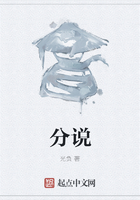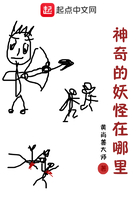We have here to remark a complete suspension of all the ordinary laws at once of chivalry and of honest warfare.Jeanne had been captured as a general at the head of her forces.She was a prisoner of war.Such a prisoner ordinarily,even in the most cruel ages,is in no bodily danger.He is worth more alive than dead--a great ransom perhaps--perhaps the very end of the warfare,and the accomplishment of everything it was intended to gain:at least he is most valuable to exchange for other important prisoners on the opposite side.It was like taking away so much personal property to kill a prisoner,an outrage deeply resented by his captor and unjustified by any law.It was true that Jeanne herself had transgressed this universal custom but a little while before,by giving up Franquet d'Arras to his prosecutors.But Franquet was beyond the courtesies of war,a noted criminal,robber,and destroyer:yet she ought not perhaps to have departed from the military laws of right and wrong while everything in the country was under the hasty arbitration of war.No one,however,so far as we know,produces this matter of Franquet as a precedent in her own case.From the first moment of her seizure there was no question of the custom and privilege of warfare.She was taken as a wild animal might have been taken,the only doubt being how to make the most signal example of her.Vengeance in the gloomy form of the Inquisition claimed her the first day.No such word as ransom was breathed from her own side,none was demanded,none was offered.Her case is at once separated from every other.
Yet the reign of chivalry was at its height,and women were supposed to be the objects of a kind of worship,every knight being sworn to succour and help them in need and trouble.There was perhaps something of the subtle jealousy of *** so constantly denied on the stronger side,but yet always existing,in the abrogation of every law of chivalry as well as of warfare,in respect to the Maid.That man is indeed of the highest strain of generosity who can bear to be beaten by a woman.And all the seething,agitated world of France had been beaten by this girl.The English and Burgundians,in the ordinary sense of the word,had been overcome in fair field,forced to fly before her;the French,her own side,had experienced an even more penetrating downfall by having the honours of victory taken from them,she alone winning the day where they had all failed.This is bitterer,perhaps,than merely to be compelled to raise a siege or to fail in a fight.The Frenchmen fought like lions,but the praise was to Jeanne who never struck a blow.Such great hearts as Dunois,such a courteous prince as Alen?on,were too magnanimous to feel,or at least to resent,the grievance;they seconded her and fought under her with a nobility of mind and disinterestedness beyond praise;but it was not to be supposed that the common mass of the French captains were like these;she had wronged and shamed them by taking the glory from them,as much as she had shamed the English by ****** those universal victors fly before her.The burghers whom she had rescued,the poor people who were her brethren and whom she sought everywhere,might weep and cry out to Heaven,but they were powerless at such a moment.
And every law that might have helped her was pushed aside.
On the 25th the news was known in Paris,and immediately there appears in the record a new adversary to Jeanne,the most bitter and implacable of all;the next day,May 26,1430,without the loss of an hour,a letter was addressed to the Burgundian camp from the capital.
Quicherat speaks of it as a letter from the Inquisitor or vicar-general of the Inquisition,written by the officials of the University;others tell us that an independent letter was sent from the University to second that of the Inquisitor.The University we may add was not a university like one of ours,or like any existing at the present day.It was an ecclesiastical corporation of the highest authority in every cause connected with the Church,while gathering law,philosophy,and literature under its wing.The first theologians,the most eminent jurists were collected there,not by any means always in alliance with the narrower tendencies and methods of the Inquisition.It is notable,however,that this great institution lost no time in claiming the prisoner,whose chief offence in its eyes was less her career as a warrior than her position as a sorceress.The actual facts of her life were of secondary importance to them.
Orleans,Rheims,even her attack upon Paris were nothing in comparison with the black art which they believed to be her inspiration.The guidance of Heaven which was not the guidance of the Church was to them a claim which meant only rebellion of the direst kind.They had longed to seize her and strip her of her presumptuous pretensions from the first moment of her appearance.They could not allow a day of her overthrow to pass by without snatching at this much-desired victim.















